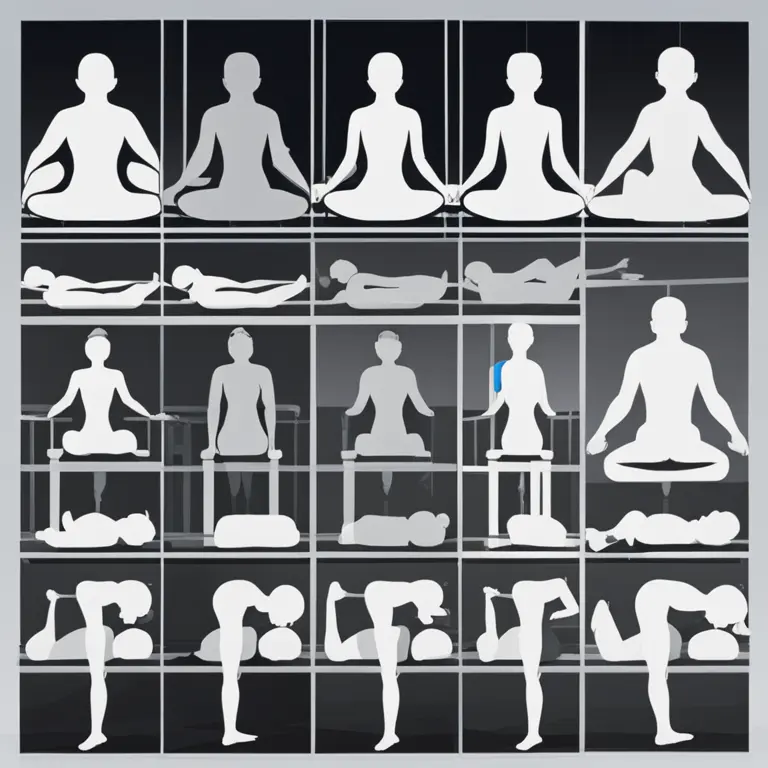
Discover Meditation Techniques for Restful Sleep
Discover effective meditation practices to improve your sleep quality and embrace a peaceful night's rest.
article by Hina Kurosawa
Introduction to Sleep Meditation
Meditation has been practiced for centuries as a technique to foster mindfulness, reduce stress, and improve overall well-being. In recent years, its benefits for enhancing sleep quality have gained recognition. A good night's sleep is essential for health and productivity, yet many people experience difficulties in achieving restful slumber. This article delves into the meditation techniques specifically designed to promote relaxation and sleep, providing a natural alternative to those seeking a serene end to their day.

Breath Focus for Relaxation
One fundamental technique in the realm of meditation for sleep involves focusing on the breath. By simply noticing the inhalation and exhalation, and consciously slowing down the breathing pattern, the mind is pulled away from distracting thoughts. This technique, known as breath focus, promotes a state of calm that is conducive to sleep. By aligning your breathing with a peaceful intention, you set the stage for a smooth transition into rest.

Body Scan for Physical Tension Release
Another powerful method is the body scan meditation, which systematically relaxes each part of the body. Beginning at the toes and moving up towards the head, you direct your awareness to each body part and invite it to relax. The body scan not only helps in releasing physical tension but also calms the mind. By mentally scanning your body, you cultivate a holistic sense of tranquility that prepares you for sleep.

Guided Visualization for Mental Ease
Guided visualization is a technique that involves envisioning a peaceful and serene setting, which can have a soporific effect. Whether it's a quiet beach or a starlit sky, these mental images can transport the mind away from the day's stressors and towards a state ready for sleep. Audio recordings and apps dedicated to sleep meditation often feature guided visualizations, taking the guesswork out of the practice for beginners.

Mantra Repetition to Quiet the Mind
The use of mantras, or simple phrases repeated silently, can be a meditative anchor that helps to maintain a single point of focus. The repetition of a mantra can be a soothing background for the mind, quieting the inner chatter that often interferes with sleep. The key is to choose or create a mantra that resonates personally and evokes a calm state of being.
Mindfulness Meditation to Stay Present
Mindfulness meditation is about being fully present in the moment without judgment. When thoughts of the past or worries about the future keep you awake, mindfulness can help steer your attention back to the present. Regular practice can train the mind to settle more quickly at bedtime, fostering the habit of letting go of disruptive thoughts and resting more easily.
Incorporating Meditation into Your Sleep Routine
To maximize the benefits of sleep meditation, it's beneficial to incorporate it into a nightly routine. Select a specific method that you resonate with, or experiment with different ones to find the best fit. Practice your chosen technique at the same time each night to signal to your body that it's time to wind down. Consistency is key in developing a meditation practice that will lead to improved sleep over time.
Combining Techniques for Customization
Feel free to combine various meditation techniques to tailor a practice that suits your individual needs. You may find that a body scan followed by focused breathing gets you in the ideal mindset for rest, or that visualization paired with a mantra creates the perfect recipe for relaxation. Personalize your approach to meditation for sleep, and you could reap the rewards of deeper, more restful nights.
Published: 1/18/2024
Modified: 1/18/2024
More predictions
Come back here soon to learn more about yourself and your future


The Science View: Meditation & Brain Health
Delve into the science of how regular meditation practices can influence and improve brain function and overall mental health.


Meditation Techniques for Better Sleep Explored
Discover effective meditation methods to improve your sleep quality and embrace a more restful night with our guide.